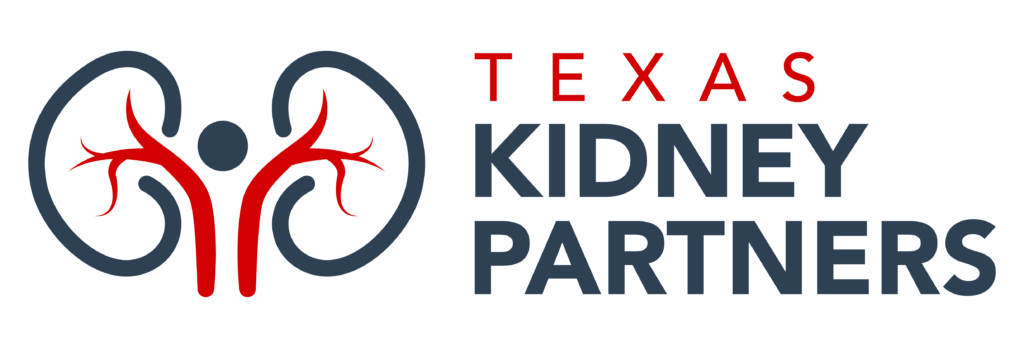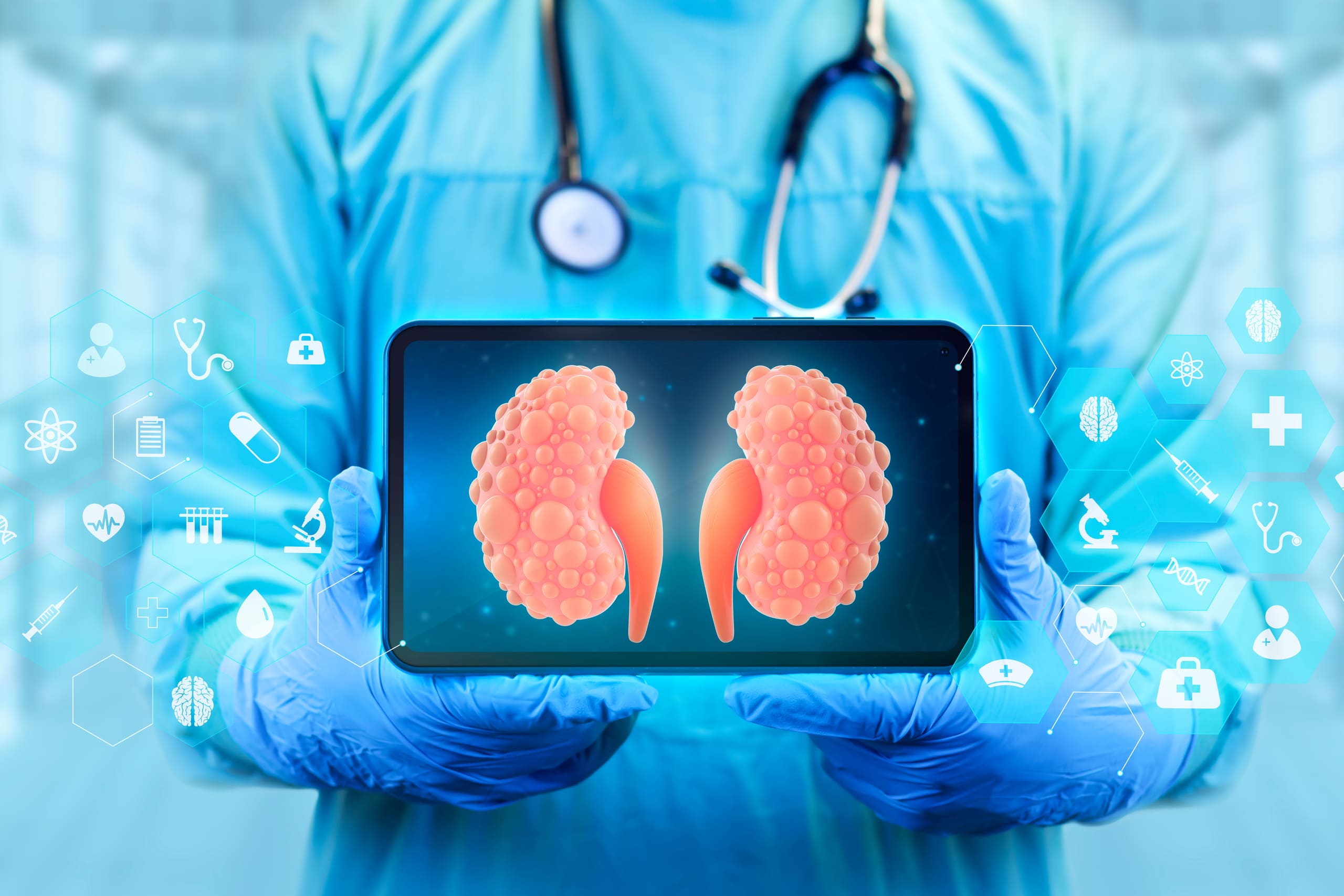Your kidneys are vital organs that help keep your body healthy by filtering excess fluids and toxins from your body and into the urine. Cystic kidney disease refers to a group of conditions that, without treatment and management, can cause serious kidney damage and even failure. Dr. Kanu and his patient-centered team at Texas Kidney Partners will work closely with you to manage your condition and keep your kidneys functioning at their best for as long as possible.
What Is Cystic Kidney Disease?
Cystic kidney disease refers to several disorders characterized by cysts, or fluid-filled sacs, forming in or on the kidneys. They are typically genetic or non-genetic in nature. These cysts can impair kidney function over time, leading to kidney failure in severe cases.
Here is a look at some of the most common forms of cystic kidney disease:
Polycystic Kidney Disease (PKD): This is the most common type of cystic kidney disease and is often hereditary. Fluid-filled cysts grow and eventually damage the kidneys, often leading to kidney failure. Autosomal Dominant Polycystic Kidney Disease (ADPKD) is the more common type of PKD, and it usually begins to cause symptoms between the ages of 30 and 50. Autosomal Recessive Polycystic Kidney Disease (ARPKD) is a rarer type, and it can cause symptoms at birth or shortly after.
Medullary Cystic Kidney Disease (MCKD): This genetic disorder causes cysts to form in the corticomedullary or inner part of the kidneys. It can cause inflammation and scarring of the tubules that help the kidneys filter waste. The damage caused by MCKD can, over time, lead to loss of kidney function and, eventually, kidney failure.
Simple Kidney Cysts: This is an acquired, common condition, especially in older adults. Simple kidney cysts are usually harmless and do not cause any symptoms, but if they grow large enough, they can cause a dull ache in the back or side, fever, or upper stomach pain. Simple kidney cysts do not usually impair kidney function or lead to more serious kidney damage.
Acquired Cystic Kidney Disease (ACKD): ACKD is an acquired condition that usually affects children or adults on dialysis. It is characterized by numerous cysts forming in the kidneys over time due to chronic kidney disease (CKD) or kidney failure.
What Are the Causes of Cystic Kidney Disease?
The causes of cystic kidney disease largely depend on the type. Polycystic kidney disease is usually hereditary and occurs due to genetic mutations. Other forms, like acquired cystic kidney disease, can develop in response to chronic kidney failure or dialysis. Environmental factors and lifestyle choices may also play roles, although genetic predisposition and age are significant factors.
What Are the Symptoms of Cystic Kidney Disease?
Most cystic kidney disease is asymptomatic. There may be nonspecific symptoms, which usually indicate the severity and/or complication of the cystic condition, including the following:
- Difficulty urinating or blood in the urine
- Pain in the back or the sides
- Elevated blood pressure
- Headaches, fatigue, weakness
- Enlarged kidneys or kidney masses
- Ruptured or bleeding cysts
- Kidney stones or infections
- Kidney failure
If you experience any of these symptoms or have any concerns, contact Texas Kidney Partners to schedule a consultation. Dr. Kanu will recommend the treatment options to keep your kidneys as healthy as possible for as long as possible.
How Is Cystic Kidney Disease Treated?
While there is no cure for cystic kidney disease, managing it may depend on its type and stage. Dr. Kanu may recommend the following:
- Managing High Blood Pressure: Medications and lifestyle changes to manage and control high blood pressure, which is one of the leading causes of kidney damage.
- Managing Pain: The cysts can sometimes cause pain, which can be managed with prescribed pain relief medication.
- Draining Cysts: Draining or removing kidney cysts can sometimes provide symptom relief.
- Slowing the Growth of Cysts: We may recommend treatment to slow cyst growth for certain cystic kidney diseases.
- Dialysis or Kidney Transplant: If the kidneys begin to fail, dialysis or a kidney transplant may be needed for survival.
Comprehensive Kidney Care Near Me in McKinney
Dr. Kanu and his team at Texas Kidney Partners are committed to empowering our valued patients to make informed decisions about their treatment options. We will work alongside you to reduce your symptoms of cystic kidney disease and maintain your kidney function for as long as possible. Contact us at 469-613-2343 to schedule a consultation, or complete our online form to request an appointment today!

